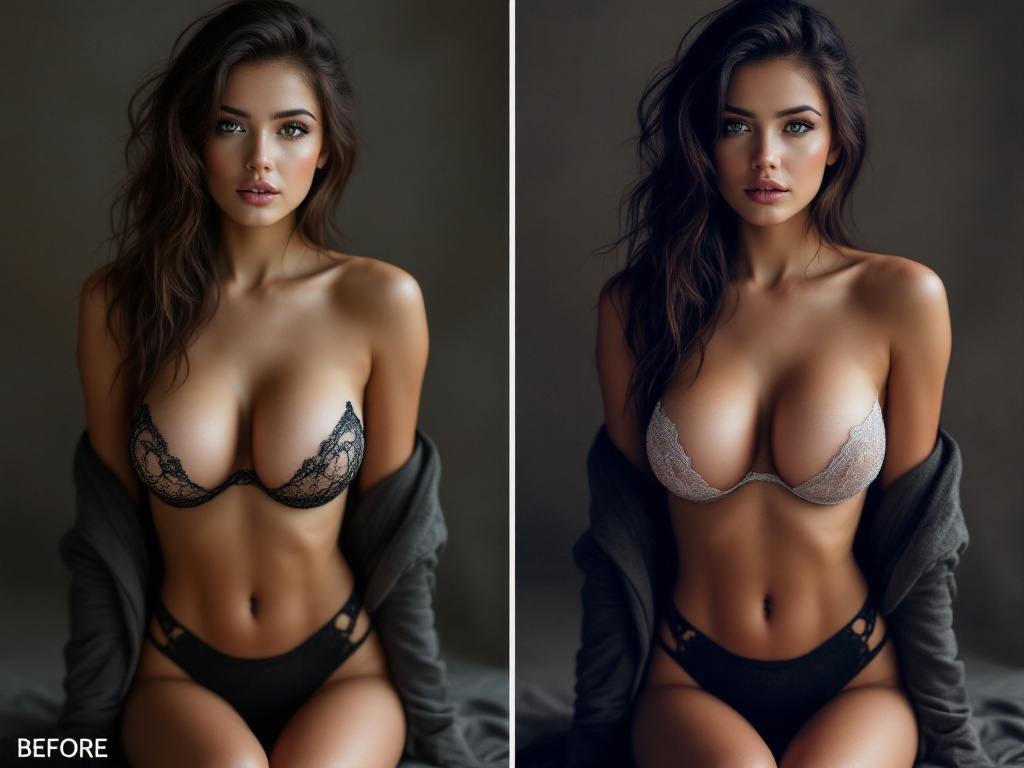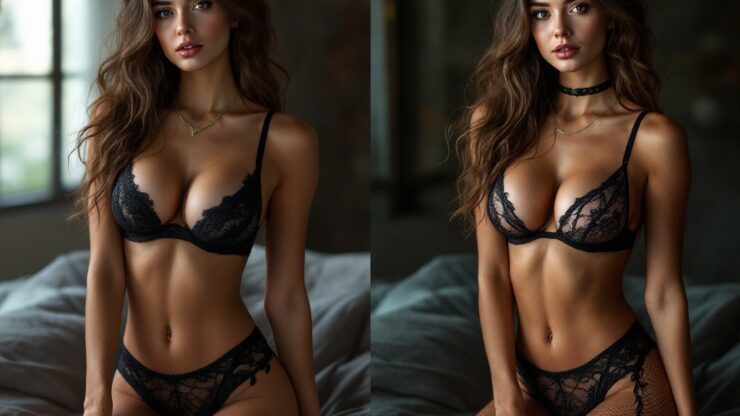In the fast-evolving digital age, the intersection of artificial intelligence (AI) and content creation has become a hot topic, particularly in the realm of erotic content. As creators embrace cutting-edge technologies, they are faced with a multitude of challenges, especially concerning copyright issues. The allure of AI-generated content, with its ability to streamline the creative process and generate unique outputs, must be balanced with the vital knowledge of protecting one’s rights. Understanding copyright laws in relation to AI becomes paramount for anyone looking to venture into this provocative field. This article navigates the complexities of copyright in the context of AI-generated erotic content, offering insights and actionable strategies for artists and writers alike.
Understanding Copyright in the Context of AI-Generated Content

Copyright serves as a protective shield for original works, allowing creators to control how their art is used and distributed. However, the advent of AI complicates these established norms. As we explore copyright laws, one fundamental question arises: who owns the works that AI produces? Copyright is designed to foster creativity, aiming to reward original thinkers while curbing unauthorized use. Nonetheless, when a machine assists or generates content, the ownership of that work can become murky. Thus, it is crucial for creators to understand the legal landscape and how it pertains to AI-generated erotic content.
The Role of AI in Content Creation

AI technologies have revolutionized the way content is produced across various industries, including the field of erotic literature and art. Tools powered by AI can generate text, images, and even interactive experiences, drastically reducing the time necessary for creation. With these advancements come undeniable advantages, such as expanding creative horizons and promoting efficient workflows. Yet, there are potential pitfalls, including ethical considerations and plagiarism risks. As creators harness AI’s capabilities, recognizing its dual nature becomes vital to navigate the complexities of copyright law. The following list outlines both the benefits and challenges presented by AI in content creation:
- Advantages of AI: Streamlines creative processes, enhances productivity, offers diverse content generation.
- Challenges of AI: Potential plagiarism, ethical concerns, ambiguity in copyright ownership.
Copyright Ownership: Who Owns AI-Generated Works?
The determination of copyright ownership in AI-generated erotic content is inherently complex, primarily due to the involvement of both human and machine inputs. Traditional copyright laws have not fully adapted to account for AI tools’ contributions. One key factor influencing authorship is the degree of human creativity involved in the process. The level of influence a human creator has over the final output can determine ownership rights. Additionally, licensing agreements come into play, which outline the rights and responsibilities between users and AI platform providers. Hence, this intricate relationship necessitates clarity to avoid legal disputes.
Human Input vs. Machine Generation
When considering copyright ownership, it is essential to evaluate how much of the content is a direct result of human judgment and creativity versus machine generation. If a creator simply prompts an AI tool without any input on creative direction, ownership may become questionable. Engaging deeply with the AI’s outputs and refining them could strengthen an artist’s claim to copyright. Thus, maintaining a balance of human creativity and AI assistance is crucial.
Licensing Agreements
Using AI tools often requires adherence to licensing agreements that dictate ownership rights. These agreements can vary significantly, impacting how you can utilize the generated content. Be sure to read and understand the legal terms associated with the AI tool you choose. This scrutiny helps in avoiding pitfalls that can arise from using AI-generated erotic content without proper authorization. The following table summarizes essential components to consider in licensing agreements:
| Licensing Component | Description |
|---|---|
| Usage Rights | Outlines how you can use the generated content (commercial, personal, etc.) |
| Attribution | May require crediting the AI tool used for content generation. |
| Modification Rights | Specifies whether you can alter the AI-generated content. |
| Termination Clause | Details conditions under which the license can be revoked. |
Best Practices for Protecting Your Copyrights
As a content creator dabbling in AI-generated erotic works, implementing best practices can go a long way in safeguarding your copyrights. One essential strategy is documenting your creative process, which can provide crucial evidence should ownership disputes arise in the future. This process can include maintaining records of drafts, sources of inspiration, and iterations derived from both human and machine input. Additionally, while registering your work isn’t mandatory, it can offer legal benefits that are well worth the effort. Below are actionable tips to bolster your copyright protection:
- Keep detailed logs of your creative journey, including dates, drafts, and sources.
- Consider obtaining a copyright registration for your final works.
- Be aware of the licensing terms of any AI tools you employ.
Legal Considerations and Challenges
As technology and its uses continue to evolve, so too do the challenges surrounding copyright law. Creators of erotic content must stay informed about ongoing debates and landmark cases that shape the legal landscape. Issues about ownership rights, ethical use of AI tools, and potential copyright infringement are ubiquitous in this discussion. Legal precedents are being established, often without clear guidelines on how to best navigate these uncharted waters. Engaging with legal experts specializing in copyrights can provide invaluable advice in this ever-changing environment.
Conclusion
In conclusion, protecting copyrights in the realm of AI-generated erotic content is a multifaceted issue that requires understanding both copyright law and the intricacies of AI technology. As creators embark on their journeys into this provocative domain, it is imperative to remain vigilant and informed. Empowering oneself with knowledge on copyright ownership, licensing agreements, and best practices can help creators carve out their unique space. Overall, navigating the complexities of AI while safeguarding your rights will ensure a fruitful and legally sound future in erotic content creation.
Frequently Asked Questions
- What is copyright, and how does it apply to AI-generated erotica? Copyright protects original works, but AI-generated content complicates traditional ownership rules.
- Can I claim copyright on AI-generated content? It depends on the level of human input and the terms of service of the AI tool used.
- How can I protect my erotic content created with AI? Document your creative process and consider registering your work to strengthen your copyright claim.
- What are licensing agreements, and why are they important? Licensing agreements specify the rights you have over AI tools, impacting ownership and usage of the content created.
- Are there any legal risks associated with using AI for content creation? Yes, issues of copyright infringement and ownership disputes are potential risks creators should be aware of.
